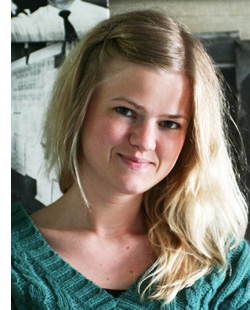
I got the idea the first time I traveled abroad to attend an international scientific conference. Wouldn’t it be exciting to do a posdoc abroad?
It was an ongoing dream during my doctoral research, and I actively networked throughout my studies. However, when my thesis defense came around, no one was clamoring to welcome me into his or her lab. Like many of you, I faced the inevitability of having to write 100 emails to lab managers in the hopes of getting at least one positive answer. (I knew the sad statistics from the experience of my peers.)
Then I got lucky: One of my colleagues forwarded me an email announcing a postdoc position in Saint Etienne, France. I sent my CV immediately. Quite soon, I received a couple of emails back with relevant questions about my thesis and abilities. My future employer also asked my colleague about my work during a conference. In the end I received an offer, which I was very happy to accept. The following are my reflections on the experience as well as my advice to others who are looking to pursue a postdoc abroad.
Prepare for paperwork. For the two months before starting my contract in France, I had to get all the paperwork in order. The bureaucracy is very strong there. I was not shocked because it can be worse in Russia. However, for someone who is accustomed to a neat and quick process, such as in the United States or Germany, it can be daunting. If you are considering a foreign postdoc, make sure you understand which documents you will need and build in enough time to deliver the required information.
I was asked to provide some documents that don’t even exist in my country. For example, I had to get a medical certificate in Moscow … from a French doctor! I also had to track down my birth certificate, which I had not used since I was 16 years old. Fortunately, I found it at my parents’ home.
Learn the language. Another important thing to consider in any foreign position is the language barrier. My future supervisor advised me to learn some French before arriving in the country. I took a short intensive course that proved to be very helpful. In France, most people don’t speak English. I had to speak French to the administration of the University, in the bank, and in order to rent an apartment. In the lab, it was easier: Everybody knew English, although they preferred to speak French.
In general, it was easy to get to know people and become part of the lab. Everyone was very friendly. Every morning there was an all-lab coffee break, and my lab mates and I went to lunch together as well. Our most important decisions were made over a cup of coffee or a glass of wine.
Test your limits. My postdoc brought with it a new level of responsibility. Since my research is related to numerical simulations, the way that I worked—in an office, on a computer—was not very different in the two countries. However, the subject of my research changed a lot. My thesis was devoted to nonlinear optics and laser pulse propagation, whereas my postdoc project was about material science and laser-matter interaction. The particular problem I was studying was new to the lab, with only one postdoc (me) responsible for its solution. Since my supervisor was busy coordinating many other projects and applying for new ones, I was largely on my own. I even had to install the necessary software on my computer. This was very different than my doctoral research, which was a continuation of earlier work and for which I received a large degree of guidance from my advisor.
Starting from almost zero was scary. I was expected to get results and have papers published by the end of the year. I worked hard and accomplished more than I thought I was capable of. I acquired new skills and knowledge. At the end of the project, I was offered the opportunity to continue working on the same subject in another French lab.
This year was very exciting and unforgettable. In addition to my professional achievements and growth, I took advantage of the wonderful French culture, great cuisine and beautiful mountains. And now I speak French.
Elena Silaeva (elena.silaeva@gmail.com) is a postdoctoral researcher in the University of Rouen, Materials Physics Group, France.
